|
Article by Lucy Boyle Edit and post design by Christy Zigweid Photo by caio_triana via Pixabay made using @WordSwagApp Let's be clear: stress is pretty much par for the course with ANY job. The fact that you're working means there's going to be some anxiety and stress involved. Even if you're engaged in a profession you're passionate about, you'll never be able to avoid the feelings of overworking, exhaustion, or pressure that come with trying to earn a living. But there are a few jobs that are MORE stressful than others. If you think you're having a rough day dealing with a pesky coworker or a micro-managing boss, wait until you see what the 7 professions below have to deal with... Military PersonnelWhen it comes down to it, there are NO jobs more stressful than putting your life on the line in defense of your country. From the moment you enter basic training, your life is one of stress, pressure, and testing as you learn the skills you need to survive in combat. Combat is the single most intense experience on Earth, and most military personnel go through it over and over for years at a time. PTSD rates among military personnel are incredibly high (up to 20% of all Iraq and Afghanistan vets suffer from PTSD). The acts of violence and horror witnessed by military personnel make for an incredibly stressful situation. ER Physician/SurgeonYou haven't known stress until you've spent hours trying to save the life of man, woman, or child in critical condition. ER Physicians deal with the stress of people running into their clinic in desperate need of medical attention. Surgeons are LITERALLY slicing people open to try and repair internal damage. And as a surgeon and ER physician, you do that over and over again, every day of your life. Both medical professionals are highly trained, but there's no training that helps them cope with the stress of holding someone's life in their hands; it is not a surprise that they are very susceptible to burnout syndrome. Law EnforcementPolice officers, detectives, and agents of law enforcement lead very stressful lives. The physical and emotional stress of investigating murders, chasing suspects, shooting and being shot at, and witnessing the worst of human nature takes a heavy toll on law enforcement officers. Depression rates are 200% higher than in other professions. The average police officer sleeps for less than 6 hours a night. It takes a special type of person to cope with the stress of law enforcement. FirefightersFirefighters may not get as much attention as police officers, but their jobs are equally stressful. They spend their lives running into buildings that are ablaze, crumbling, and close to collapse. Many firefighters are also EMTs and paramedics, or participate in water rescues, accident scenes, or rescue efforts after natural disasters. The working conditions are hazardous and firefighters often see horrible things that no one should ever have to witness (like people being burned alive). Airline PilotsThe life of a pilot basically comes down to TWO intensely stressful moments: take-off and landing. Landing a plane filled with people is no easy task, even when the airplane is working perfectly. It can be incredibly stressful to spend hours every flight checking the equipment, monitoring everything from wind speed to weather patterns, and preparing for the heart-stopping moment when you touch down on the tarmac. The stress of landing a plane is so intense that pilots are only permitted to fly for a certain number of hours before taking a break. Stress rates among surgeons is a reported 30%, while a staggering 74% of pilots claim stress influences their actions. Photo by TeroVesalainen via Pixabay Emergency DispatcherThe physical stress of an emergency dispatcher isn't too bad—after all, you spend most of your day sitting in a chair answering phone calls. However, the emotional and mental stress can be worse than most of the other professions on this list. Emergency dispatchers receive all 911 calls, meaning they hear about domestic violence, homicide, arson, and crime reported. It's incredibly stressful to try and remain calm while someone is crying or begging for help. Emergency dispatchers have to collect addresses to dispatch the proper emergency services. They may even walk the caller through the steps of saving a victim's life if EMTs or police officers can't reach the scene in time. Talk about a high-pressure job! Newspaper Reporter/JournalistIt may not sound stressful to write, but the truth is that being a reporter or journalist can be VERY intense. You have to stay on top of all the latest news and you have to be available at a moment's notice to cover a breaking story. Most journalists and reporters are always trying to find a new scoop or exclusive story. The pay is low, the hours are long and unpredictable, and there's no such thing as "off duty" when you write for a newspaper. About the Author
0 Comments
Guest Post by Tim Stoddart Edit and Post Design by Christy Zigweid Photo by markus53 via Pixabay - made using @WordSwagApp In general, anxiety is part of the human experience. It’s a natural reaction to stress. It might show up as sweaty palms before an interview, chaotic thoughts clashing in your head before making a big decision, or a general sense of unease in daily situations like meeting new people. Anxiety spans across a broad spectrum. One of the most common mental illnesses affecting U.S. adults--about 40 million—are anxiety disorders. When anxiety levels become difficult to control and negatively affect day-to-day living, it can be deemed an anxiety disorder. Anxiety can lead to a host of physical problems, as well as life problems: anxious habits, substance abuse, difficulty with relationships, problems at work. No matter how it shows up in your life, anxiety can be troublesome. An anxious response can range from uncomfortable to inconvenient to overwhelming. Even in situations of “minor” stress, our brains behave differently and we don’t always think clearly. Your Brain on Anxiety
Our brains can also trigger an anxious response from something internal—a quiet thought or worry—and experience the same fear, dread, or apprehension. Our bodies still react, and our thought patterns can become clouded by emotions. Anxiety is a powerful force in your brain. But how you react to it can make a huge difference in the power it has over you. Don’t think of anxiety as all bad! That energy in us can also help us to be more productive, pay attention to detail, and creative. It’s not about beating anxiety, but outsmarting it in your everyday life. Slow Down
Breathe Being told to “just breathe” can be really frustrating in the heat of anxiety, but it’s actually great advice. In a research study, scientists found that certain emotions change our breathing pattern. Similarly, by taking control of our breathing, we can change the way that we feel. When we’re anxious or stressed, our heart beat elevates and our breathing becomes fast and shallow. If we continue this breathing pattern, we prolong the emotional response. According to the study, the best medicine for anxiety is “deep, slow breathing into the belly.” Be Mindful Does your mind ever start racing, but you need to get focused again? Grounding techniques are a practice in mindfulness that you can use every day. When the thoughts start picking up speed, ground yourself by focusing on something concrete. Focus your attention on sensory details around you and stay in that moment. Wiggle your fingers and watch their movements. Tap your feet in a rhythm. Focus on those sensations and the control that you have over your body. Look up at the sky, hone in on the movement of the clouds. Describe the colors and shapes of the leaves—aloud or in your head. Whatever you can do to put yourself in the present and relax, do it. We spend so much time worrying about the past and the future, but things slow down when we can put ourselves in the present. In general, you can practice mindfulness at any time—while you’re eating, in the shower, on a walk, or listening to music. It can help in any intense emotional state. Get Centered
Get Outside It’s easy to lose touch with Mother Nature amidst our busy lives. But, time spent outside is important—it’s a break from our everyday stresses, it can help us to relax and breathe easier, and it’s the ultimate place to get serene and practice mindfulness. Even if it’s just for a short stroll, by stepping outside to appreciate the tangible beauty in our world, we can bring ourselves back to center. Meditate A great activity to practice outdoors is meditation. When we’re tangled up in anxiety, it might seem impossible to sit still, be quiet, and meditate. Like any skill, meditation gets easier with practice. Think of meditation as personal therapy time—a space to untangle your intense emotions. First, control your breathing and let your emotions settle. Then, quiet your mind. What are you feeling? Are you bothered, angry, fearful, stressed? Taking the time to meditate reminds you that—here, in this moment—you are safe and you are okay. You can meditate at home, outdoors, or even in a quiet place on your work break. Meditation isn’t limited to sitting cross-legged in the lotus position. You can sit in a chair, lie down, or take a walk. Some people enjoy guided meditation recordings, calming music, or nature sounds, while others prefer quiet. And it doesn’t have to last an hour—try 15 minutes, 5 minutes, or even just 1 minute. Get Real
Reason with Yourself If we can slow down our thoughts, we have a chance to challenge some of our thinking. When you’re feeling nervous, afraid, or overwhelmed, talk to yourself like you would a friend. What’s going on? What’s inspiring your fear or apprehension? Are your fears posing an imminent threat, are they far-off in the future, or are you stuck on the worst-case-scenario? What can you control, and what’s out of your control? Take action when you can, but so much in life is out of our control. Ease the panic by identifying what you can do and what you must let go. You can use internal self-talk to get real with yourself; try talking aloud, or writing those thoughts into a journal to make more sense of them. Reasoning with yourself may not “fix” the problem, but you parse through the intense feelings and see things more realistically. Be Kind to Yourself Many people, like myself, get frustrated with their anxiety. We perceive ourselves negatively when anxiety has a hold on us. Instead, make an effort to be a patient and accepting friend to yourself. Allow your feelings to exist without judgment. Bolster yourself against negative thoughts, rather than putting yourself down even more. One of the best ways to practice this is through positive affirmations—statements or mantras that you use to bring positive thinking into your life. You can say them in your head, aloud, or write them down and post them somewhere you can see them. The idea is to practice them daily and change the color of your thoughts. No need to be insincere—use statements you believe in, that will actually help you. I am safe. Life is good. It’s a beautiful world. Let it Out Last but not least, we all need an outlet for our feelings. With any emotion, it manifests in our body as energy—and you can feel that pent up energy and tension with anxiety. Find a way to let it out. For many of us, this means having a trusted friend you can talk to or call in tough moments, or scheduling time to meet with a therapist. Talking it out is a way to release those feelings and reason with yourself and someone else in the process. There are also healthy routes of self-expression worth trying. Journaling is extremely effective for many people, helping them to interpret and understand their thoughts. But, writing isn’t the only way—paint, draw, collage, sing, dance, cook a meal. The idea is to find a way to express whatever chaos goes on in your brain so you can lessen the negative impact it has on you. Anxiety is Smart but You're Smarter
About the Author
We currently live in a society that causes us to have incredibly stressful lives. I will get into the statistics and science behind stress later, but I am sure you don’t need to be a social scientist to see what is happening today. From the domination of social media in our lives to the 24/7 workloads, our lives have become more hectic than our bodies and minds are equipped to handle. When was the last time you got on an elevator and someone was not on their phone? When was the last time you didn’t feel the need to check your work email while away from the office? Have you gone on social media and felt some type of stress related to something you weren’t accomplishing in your life as compared to your friends? The American Psychological Association and the American Institute of stress conducted a study in 2014 and the results paint a grand picture of a stressed-out society.[1] The Top Causes of Stress[2] 1. Job Pressure 2. Money 3. Health 4. Relationships 5. Poor Nutrition 6. Media Overload 7. Sleep Deprivation You are probably not surprised that job pressure is the number one cause of stress. In fact, you're probably not even surprised that money is number two on the list. I found it interesting, but not surprising, that media overload made the list, due to the social media driven nature of our society today. Social Media and StressSocial media is a fantastic development for our globally connected world. It has enabled me to build personal relationships with fantastic people all over the world. My non-profit mental health advocacy platform ConquerWorry.org™ and our podcast, “The ConquerWorry™ Show” would not have come into existence without the leverage created by social media. According to Dr. Ethan Kross, founder of the Emotion & Self Control Laboratory at the University of Michigan, there is a direct connection between heavy social media usage and happiness[3]. Professor Margaret Duffy of The University of Missouri’s School of Journalism reports that “Facebook can be a fun and healthy activity if users take advantage of the site to stay connected with family and old friends and to share interesting and important aspects of their lives. However, if Facebook is used to see how well an acquaintance is doing financially or how happy an old friend is in his relationship—things that cause envy among users—use of the site can lead to feelings of depression.”[4] The BBC reports that social media can even lead to Posttraumatic Stress Disorder (PTSD)[5]. As with most things in life, there are positives and negatives to social media. Personally, I am a big fan of building relationships through the power of social media. But it is absolutely imperative to make sure you use social media correctly in order to maintain your stress levels. A Closer Look At The Numbers The aforementioned study from The American Psychological Association and the American Institute of stress produced some interesting and telling statistics.[6] The physical symptoms of stress are felt by 77% of us, while 73% of us experience the psychological symptoms of stress. Do you feel tired all the time? You are not alone! It is reported that 51% of us experience fatigue due to stress, and 30% carry muscle tension as well. Statistics People who regularly experience the physical symptoms of stress: 77% Fatigue: 51% Headache: 44% Upset stomach: 34% Muscle tension: 30% People who experience the psychological symptoms caused by stress: 73% Irritability or anger: 50% Feeling nervous: 45% Lack of energy: 45% Feeling as though you could cry: 35% People who feel their stress has increased of the past five years: 48% People who cite money and work as their leading cause of stress: 76%
 Jay Coulter is an author, keynote speaker and mental health coach. He is the author of Conquer Worry - How To Build A Simple Daily System To Reduce Stress. He is also the founder of ConquerWorry.org™. The platform is a volunteer run organization dedicated to inspiring, educating and advocating for those who struggle with their mental health. ConquerWorry™ has almost 150,000 social media followers and we would love to have you in our community which can be found online and on most social media platforms. TWITTER | FACEBOOK | INSTAGRAM | PINTEREST | MEDIUM The ConquerWorry™ Podcast with Jay Coulter can be found on: iTunes | YouTube | Stitcher | TuneIn Radio [1] “Stress Statistics,” Last modified October 2015, http://www.statisticbrain.com/stress-statistics/
[2] “Daily Life Stress,” Last modified April 2016, http://www.stress.org/daily-life/ [3] University of Michigan Insititue for Social Research, Last modified September of 2013, http://home.isr.umich.edu/isrinnews/ethan-kross-2/ [4] “If Facebook Use Causes Envy, Depression Could Follow,” Last modified February 2015, http://munews.missouri.edu/news-releases/2015/0203-if-facebook-use-causes-envy-depression-could-follow/ [5] “Can Social Media Cause PTSD? Last modified May 2015, http://www.bbc.com/news/blogs-trending-32852043 [6] “Daily Life,” Last accessed April, 2015, http://www.stress.org/daily-life/ There are six systems in your body that are affected by stress according to Stress.org. If any of these systems came under duress, life would be difficult. But as anyone who has struggled with extreme stress can attest, typically more than one system is affected during periods of extreme stress.[7]
While you may not experience all of these symptoms, we know from statistical research that 77% of the population has experienced at least one of these challenging effects of stress. A little stress every now and then is not something to be concerned about. Ongoing, chronic stress, however, can cause or exacerbate many serious health problems. Dr. Ernesto L. Schiffrin, M.D., Ph.D of the American Heart Association said that “When stress is excessive, it can contribute to everything from high blood pressure…to asthma to ulcers to irritable bowel syndrome”[8] My research says we also need to include:
Clearly stress has a devastating on our bodies if not managed correctly. In my experience, building a simple daily plan can help relieve some of impact of stress. Jay
 Jay Coulter is an author, keynote speaker and mental health coach. He is the author of Conquer Worry - How To Build A Simple Daily System To Reduce Stress. He is also the founder of ConquerWorry.org™. The platform is a volunteer run organization dedicated to inspiring, educating and advocating for those who struggle with their mental health. ConquerWorry™ has almost 150,000 social media followers and we would love to have you in our community which can be found online and on most social media platforms. TWITTER | FACEBOOK | INSTAGRAM | PINTEREST | MEDIUM The ConquerWorry™ Podcast with Jay Coulter can be found on: iTunes | YouTube | Stitcher | TuneIn Radio [7] “Ways the Body Reacts to Stress,” Last modified 2011, http://www.stress.org/wp-content/uploads/2011/10/GR2007012200620.jpg.
[8] “Stress and Heart Health,” Last modified 2014, http://www.heart.org/HEARTORG/HealthyLiving/StressManagement/HowDoesStressAffectYou/Stress-and-Heart-Health_UCM_437370_Article.jsp?appName%3DMobileApp&sa=D&ust=1460995209781000&usg=AFQjCNGMmUQTV8MMQ4xjLCycOjtRUoQmUQ Article by Two Wise Chicks Post Design by Christy Zigweid Photo by quinntheislander via @WordSwagApp (Pixabay CC) It's exam season again, and we all know what that means... Photo courtesy of Pixabay by Counselling It may be the dreaded Exit Exams, end of year exams, College exams - whatever they're called, it's no picnic - and for many of us it leads to feelings of panic. We'll keep this short 'n sweet given that your eyes are probably weary from all the other reading (and breathing into a paper bag) you're doing. Our tips are evidence based and doable, and will help you feel less overwhelmed - promise. DO's: 1. Stick to your routine (studying, sleeping, eating) - now is NOT the time to make any big changes. 2. Use summary cards to whittle down your notes to key points. (Interesting fact: if you're dyslexic it really helps if you use yellow cards with red pen). 3. Eat - healthfully and regularly. 'Dieting' or otherwise restricting yourself in order to get your body 'beach ready' for the post-exam holiday is not a priority (see #1 above). 4. Sleep. You'll be tempted to pull all nighters. Understandable but ineffective. We need to have slept well to be able to reproduce learned material well. 5. Get out in the air. Exercise. If you feel too tired, it may be study induced inertia - get out and you'll notice your energy level will come back up. It will. And you'll think more clearly too. 6. Talk if (when) you are stressed, choose someone who will actually listen and be helpful. 7. Take a lot of breaks. 8. Study at a desk if possible, not in bed, or on a couch. (We have reasons for this but trying to keep this short ;)). 9. Wear the same perfume/ aftershave/ deodorant studying as when taking your exams (lots of scientific reasons for this). 10. Visualise yourself succeeding. Visualise yourself getting your results and being happy, getting that placement, result or even that job you want so badly. Mental rehearsal works (yes, there's proof of that too!) DON'T 1: Over-do caffeine or take vitamin supplements that you're not used to just because you heard or read somewhere that they help you concentrate. 2: Don't take those study drugs that people are trying to sell to students. All they care about is your money (goes for all drugs, but we digress...) and we know that the side effects can actually damage your performance. 3: Don't engage with relatives or adults who are pressuring you (as opposed to encouraging you) to perform well. They may well have their own regrets and are now foisting them on you. #NotYourProblem. 4: Don't tell yourself or others that you'll fail, not even jokingly. It's not kind and you wouldn't do it to someone else. It also falls into a negative mindset that can mess with your motivation. 5: Don't take fewer breaks now because you're running out of time. Now is the time for more breaks, because you're getting more stressed. It can feel counter-intuitive but it's true! 6: Don't talk to your friends before the exams if there's a chance it will make you anxious. It's OK to avoid people now unless they're supportive and calming. It's always ok to limit exposure to people and situations that are not supportive... 7. Avoid chats, FB threads and friends who are panicking and negative and lying about how much work they've done ("I still haven't opened a BOOK!!" - Right? You know the ones..). 8. Don't stop having fun - TV shows, Netflix, music or socialising that makes you laugh or feel good, keep doing them. Just not too late at night and remember to give your brain screen time rest for 30 mins before sleepy time. Photo courtesy of Pixabay by ClkerFreeVectorImages Students in their teens need 8-10 hours of restful sleep for optimum brain functioning. It's better to sacrifice study time than sleep time... it really is Stay as present as you can, breathe.... You've got this - and we've got your back! P.S. PLEASE add any tips you have that have helped you cope in the comment section below (you never know who you might be helping!). ABOUT THE AUTHORS Sally O’Reilly
Sally wants to help create a world of compassion for ourselves and others. A world where mistakes are allowed, gender roles don’t exist, sex ed in schools is a real thing and everyone dances – lovely! As a psychologist and psychotherapist in Ireland, she’s worked for nearly twenty years in private practice, with adults and trainee adults of all ages. She blogs on her own website, is a feature writer for super duper parenting website Voiceboks.com, does print and radio media work and has been known to Tweet. She’s the one running our Twitter page! When she’s not working, you will find her engrossed in Science Fiction or some dark and Danish TV show, listening to music, watching the sea (while really, really wishing it were warmer), or figuring out how to work Lightroom on her Mac. All while munching on Bombay mix. #multitasker! She’s happiest when dancing and erm…. her cat has his own Facebook page. We won’t link to that, it’s too embarrassing.. Tanya Tinney Tanya looks forward to living in a world where people know their worth, respect boundaries, and always have time for tea and chocolate. A magic bubble that protects her from sticky fingers, hormonal girls and dog hair would be awesome as well. Her education and much of her training is in the areas of psychology and human potential. She worked as a licensed psychologist for over 14 years, with 10 of those years spent building her own successful private practice. In total, she has over 20 years of varied experience working, volunteering for non-profit agencies, and consulting to small business. Most recently she has launched her dream online coaching practice where she gets to work with motivated, amazing women who need help overcoming life’s hurdles. Exciting times! She has lived in Ireland, Ethiopia (okay, just 6 months), Canada, and currently lives in central Texas with her husband, three girls (including fraternal twins), two dogs and three cats. When she’s not finding ‘everyday moments’ to write about here or on herown blog, you can find her being walked by her dogs, unearthing unidentifiable food-objects under the couch cushions or baking her famous banana bread. Tanya runs our Facebook page – and not to be outdone by Sally’s cat, her dog has its own Facebook page too. What Stress Is Doing To You
Your Brain
Chronic Stress (and exposure to glucocorticoids) can kill some of your brain cells. A study conducted by Dr. Robert Sapolsky of Stanford University in the 1980's found that chronic stress caused damage to the hippocampus (the part of your brain that drive learning and memory). It changes brain circuits and as a result, acute stress can make you 'stupid' in the short term! Your Heart Stress restricts and clogs arteries reducing blood flow to heart. High levels of stress today will effect you today and your health for years to come. Your Immune System Stress can cause havoc on your immune system. A research paper (Segerstrom & Miller) from 2006 studied 300 empirical articles and concluded that our immune system is detrimentally affected by chronic stress.
"The results of this meta-analysis support this assertion in one sense: Stressors with the temporal parameters of the fight-or-flight situations faced by humans’ evolutionary ancestors elicited potentially beneficial changes in the immune system. The more a stressor deviated from those parameters by becoming more chronic, however, the more components of the immune system were affected in a potentially detrimental way." Segerstrom & Miller (2006)
Your Body Weight
The Whitehall Study found a link between stress and weight gain in the abdominal area. Weight gain in the 'midsection' is the worst type of fat your body can carry. This is dangerous fat as it produces different chemicals and hormones that harm your body. Your Aging Process We have 46 chromosomes that are each capped off with a telomere which protect the ends of our chromosomes from fraying. Stress can change these genetic structures. Our telomeres naturally shorten as we age, but scientists now know that the stress hormones speed up the decaying process. Dr. Elissa Epel did a study of mothers who were taking care of disabled children and thought to be understandably under chronic stress. The study looked at the telomeres of these women and for that for every year of chronic stress, they aged roughly six years. Conclusion Dr. Elizabeth Blackburn, a thought leader in telomere research, co-discovered an enzyme called telomerase can repair damaged telomeres. This enzyme is stimulated by compassion and caring for others. Developing COMPASSION & MINDFULNESS could help heal the damaging effects of stress and possibly help us live longer, healthier lives.- Jay Coulter Sign-up For Tips And Resources On Mental Resilience (Click Here)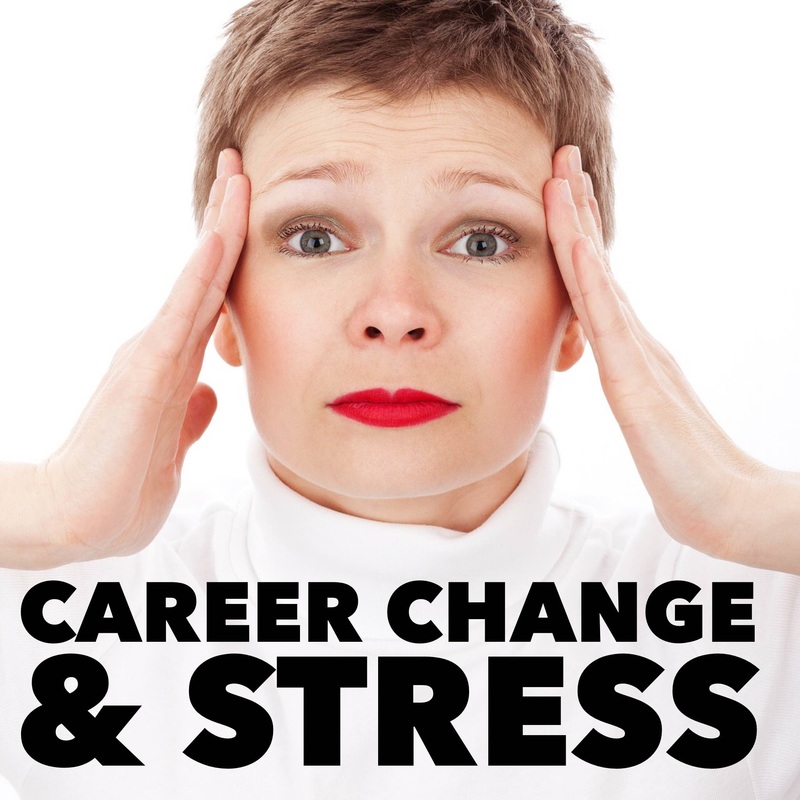
For anyone struggling with their career, unemployed or just looking at changing careers, it can be a very stressful period. If this period is accompanied by worry, extreme stress or mental illness it becomes even more challenging. I ran across this 5 minute video from The School of Life that does a great job of helping you frame the thought process of a career change. A summary and the video are below.
Jay Coulter
Summary
1. Accept that being confused about your career is OK. 2. Know yourself. 3. Think a lot. 4. Try something. 5. Reflect on what makes people unhappy. 6. Be confident BIG IDEA #1: The difference between success and failure is the willingness to "give it a go." BIG IDEA #2: The ultimate criterion when choosing a career should be to choose a career we would not regret on our deathbed. |
Build Your Action Based Stress Reduction System
Popular PodcastsOlympian Suzy Favor Hamilton - From Fame to Prostitution to Advocacy
Hall of Fame Basketball Star Chamique Holdsclaw on Mental Resilience Diana Nightingale on her husband Earl Nightingale's Principles for Mental Health Success JoAnn Buttaro on Date Rape & PTSD Survival Story: Its Never Too Late Gabe Howard on BiPolar Advocacy Phil Fulmer on Teen Suicide Prison, Bipolar and Mania with Andy Behrman Columbia Univeristy's Dr. Rynn on OCD Archives
March 2018
Categories
All
|

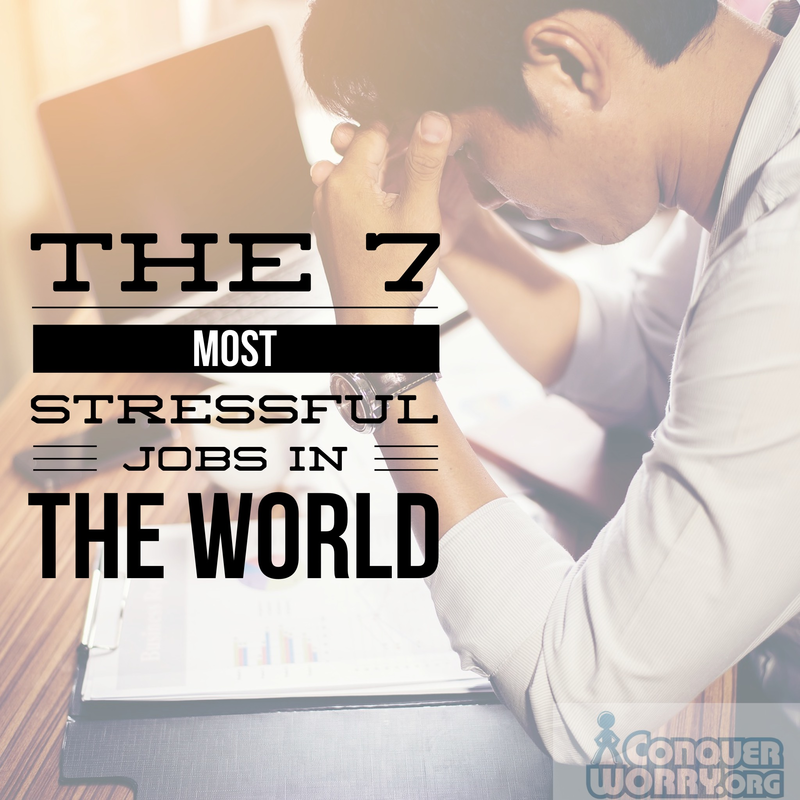
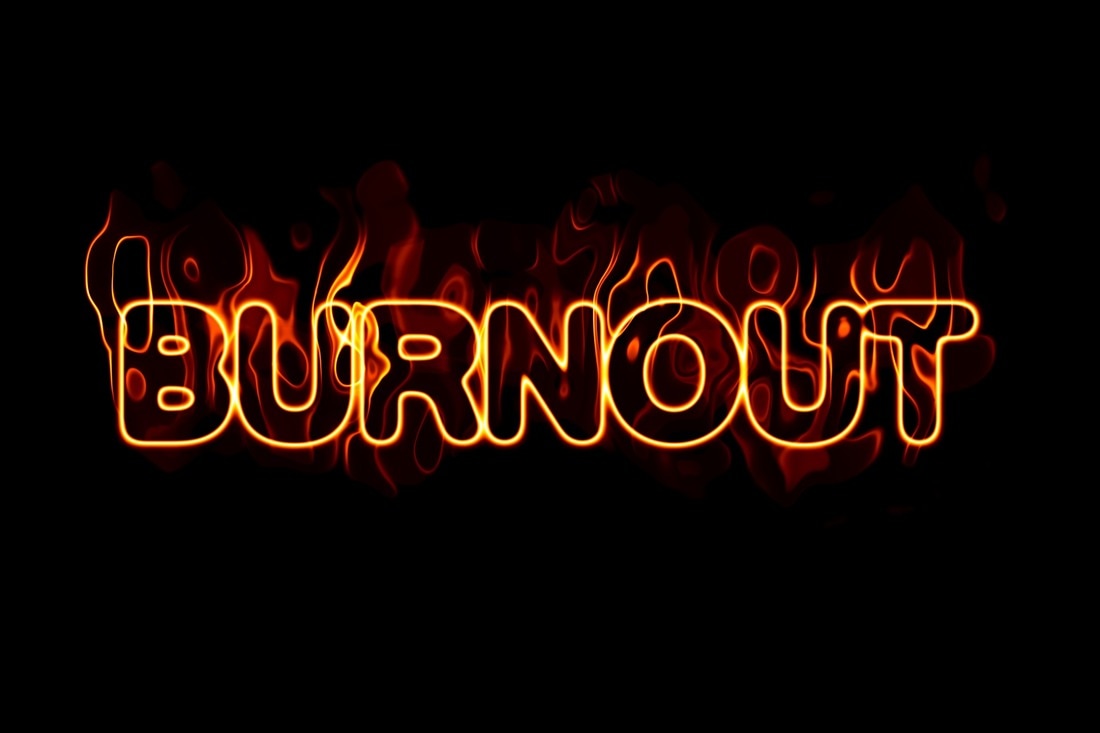
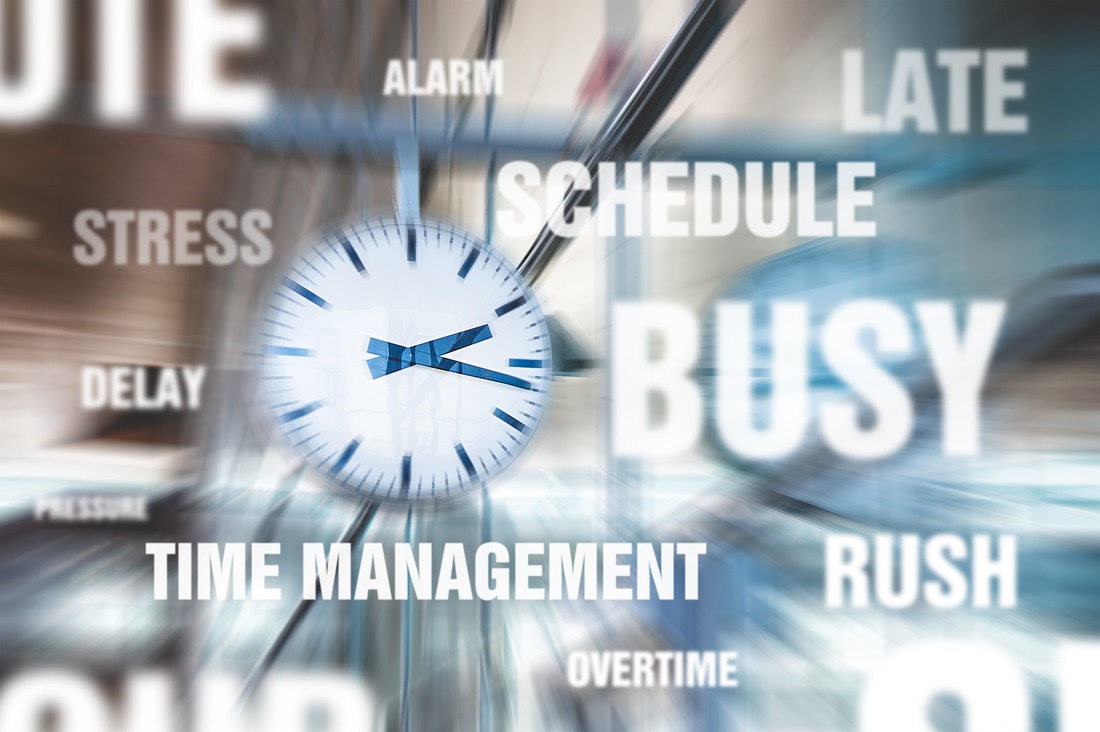

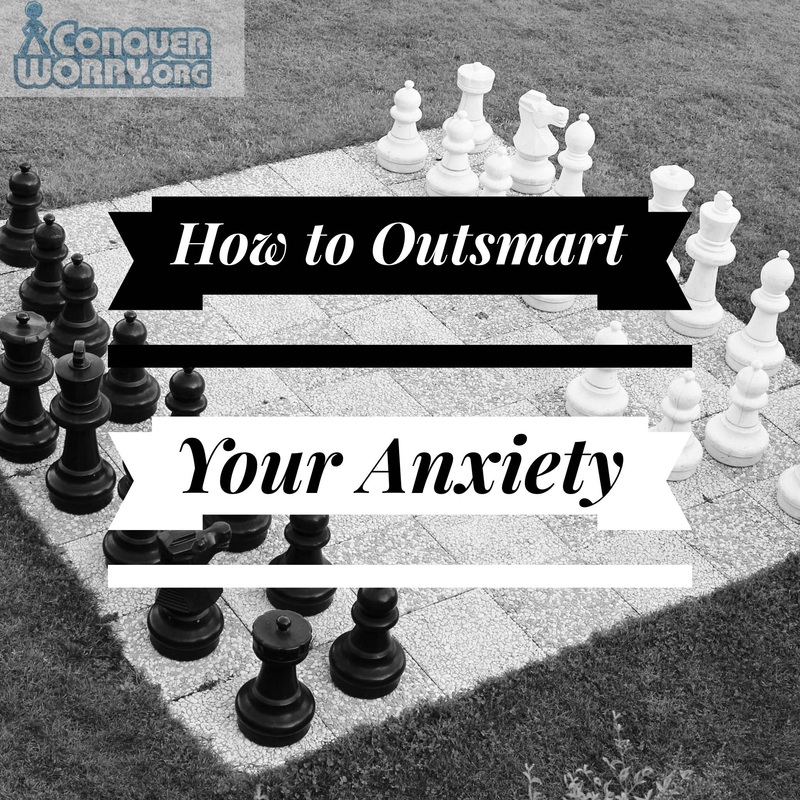



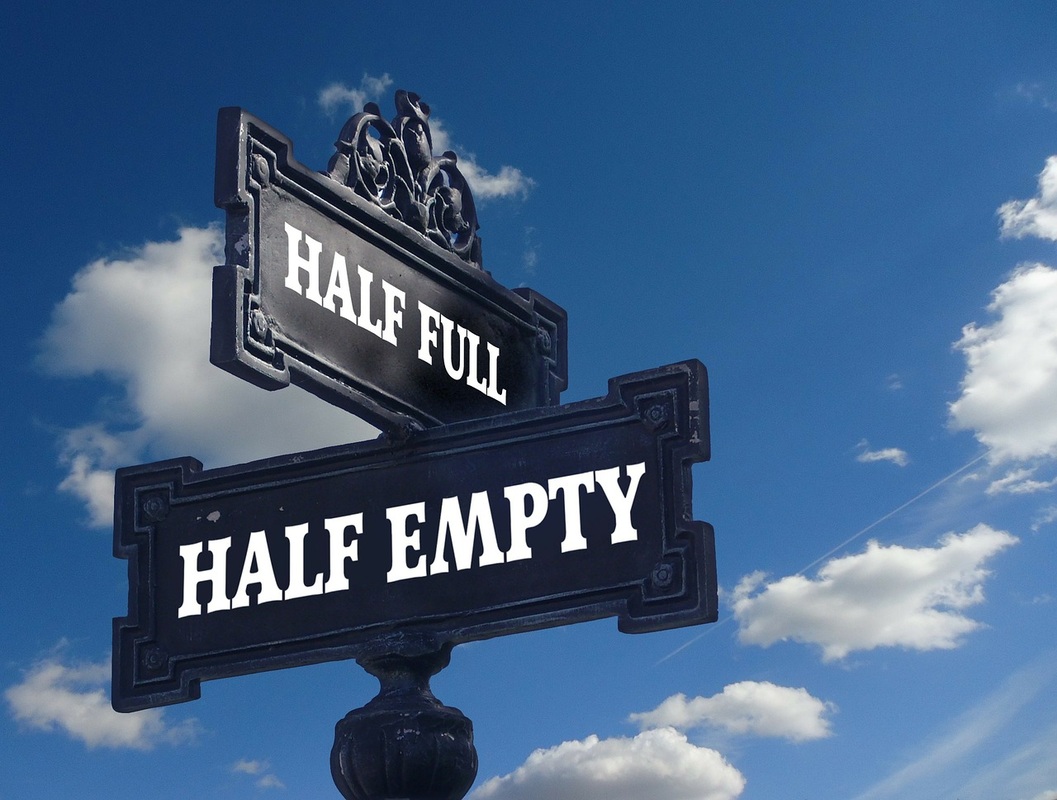


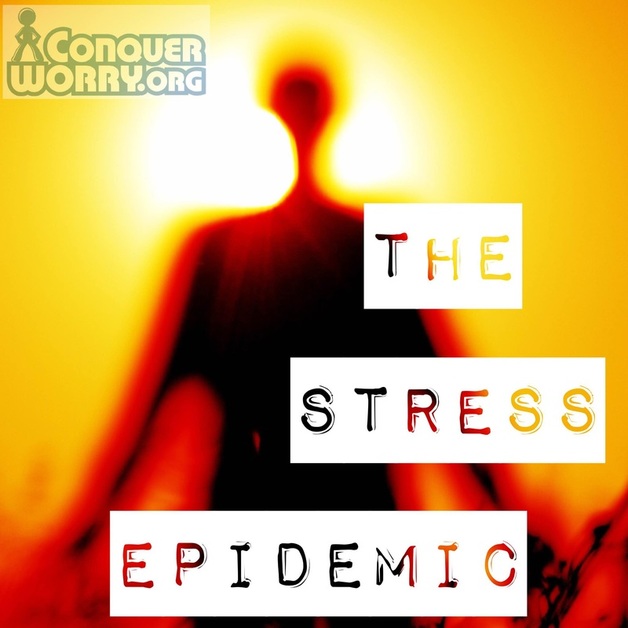
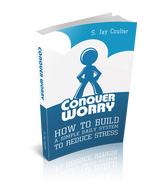
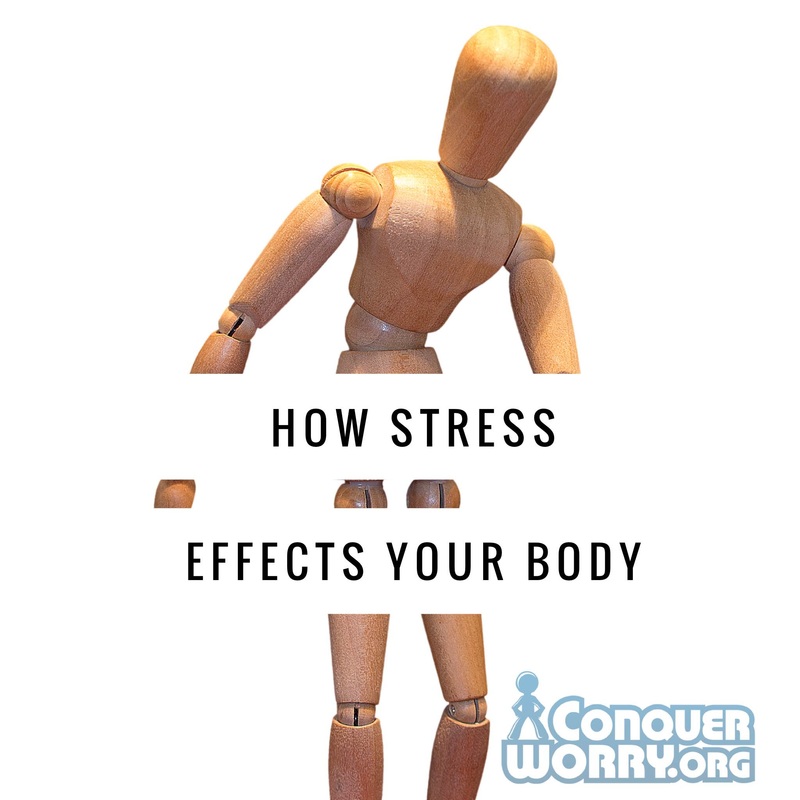
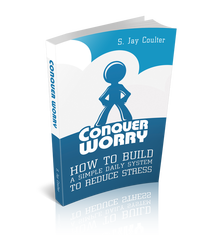
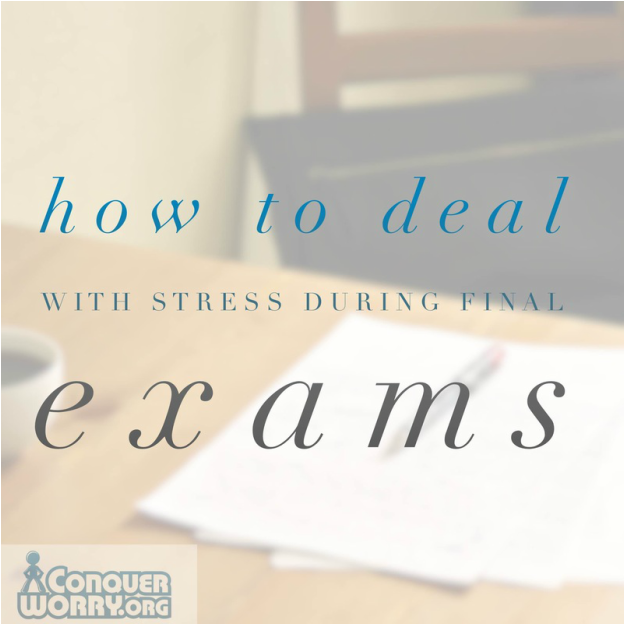
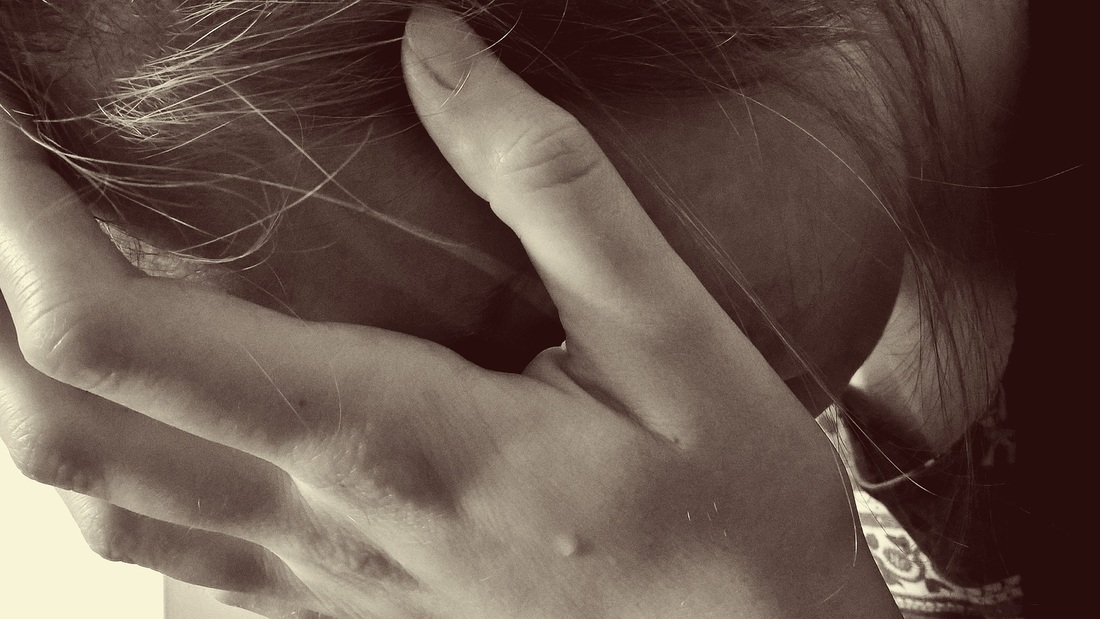



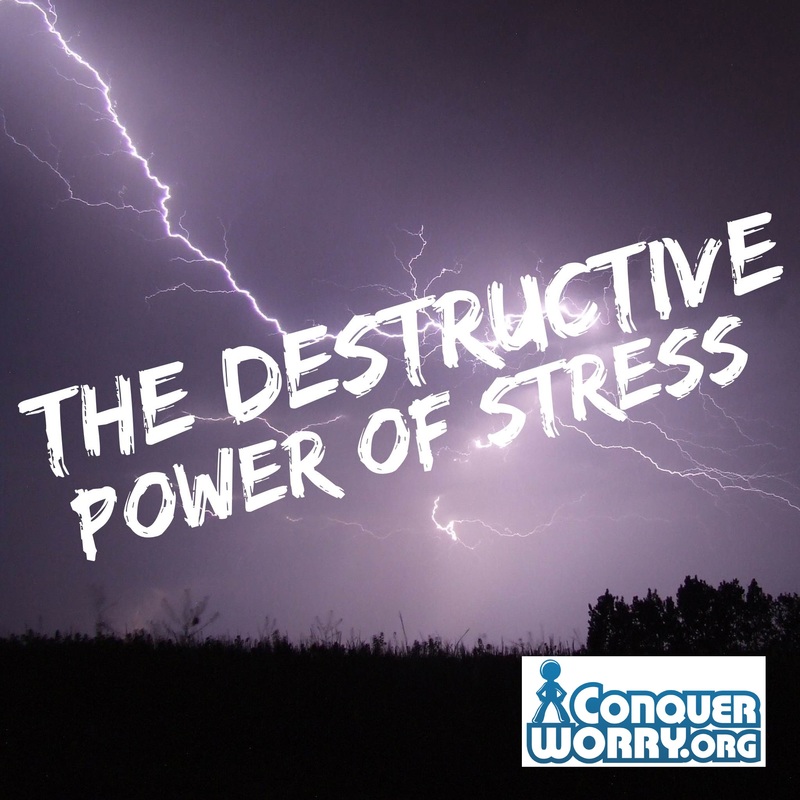
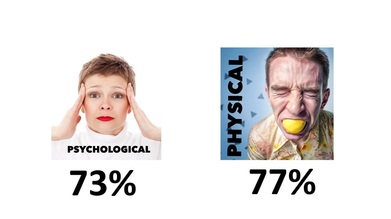

 RSS Feed
RSS Feed





